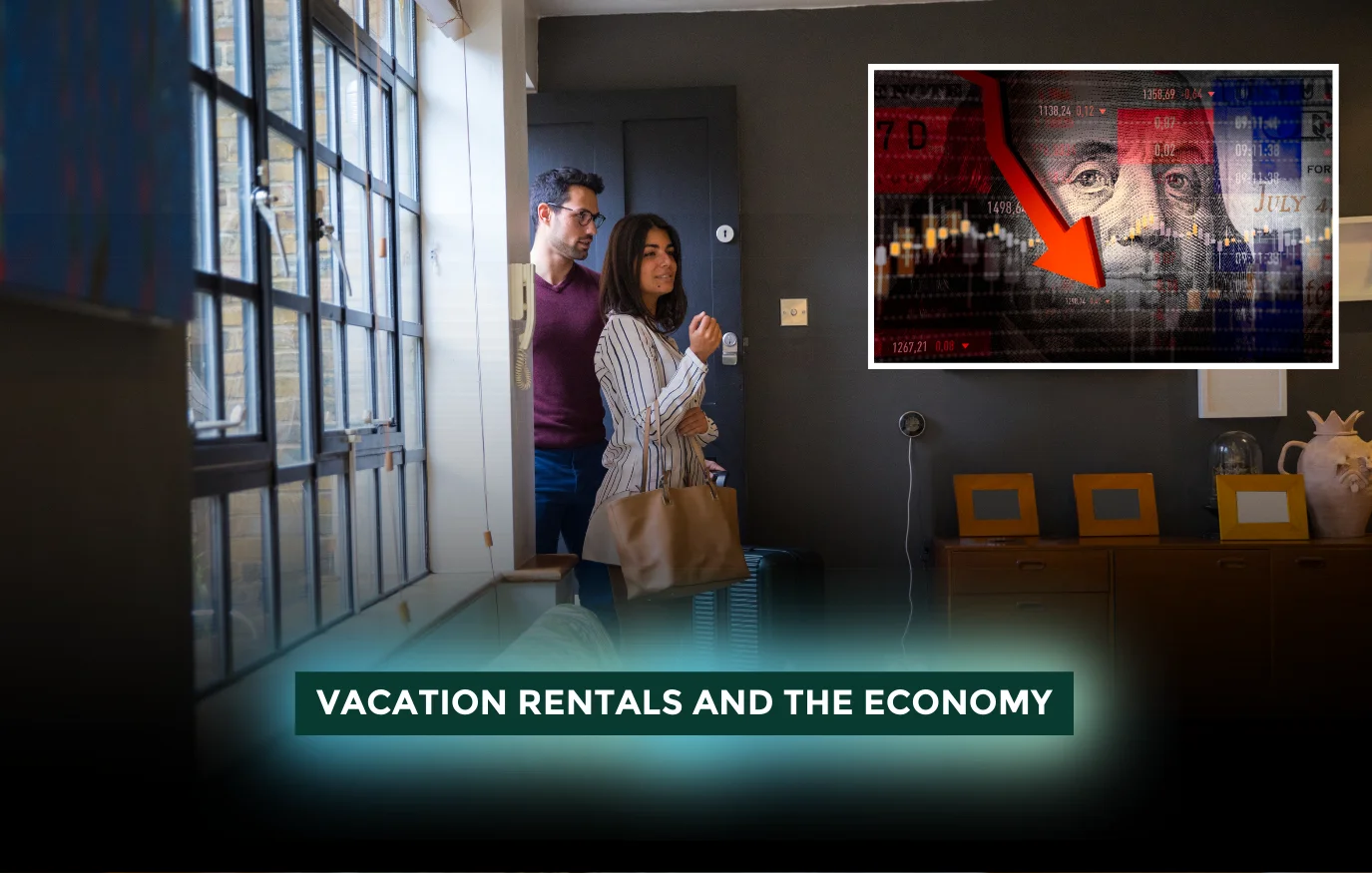The vacation rental industry, led by platforms like Airbnb, has transformed travel and real estate. By providing unique, affordable, and flexible options for travelers, short-term rentals have impacted local economies, real estate markets, and tourism across the world. This article dives into how vacation rentals contribute to the economy and the challenges they bring, offering a comprehensive look at both the positive and negative impacts.
1. What Are Vacation Rentals?
Vacation rentals are properties rented out for short stays, often ranging from a night to several weeks. Airbnb, Vrbo, and other platforms make it easy for homeowners to list spare rooms, apartments, and entire houses. For tourists, vacation rentals are attractive because they offer unique experiences, often at more affordable prices than hotels.
2. Economic Benefits of Short-Term Rentals
Short-term rentals bring notable economic advantages to property owners, local communities, and the broader economy. Below is a summary of the benefits:
| Impact Area | Economic Benefit |
| Property Owners | Earn extra income by renting out part or all of their homes |
| Local Businesses | Tourists spend money at local restaurants, shops, and attractions |
| Job Opportunities | New jobs in cleaning, property management, and maintenance services |
| Tourism Growth | Vacation rentals attract more tourists, often spending more locally |
Additional Income for Property Owners
Short-term rentals give homeowners a way to earn extra income. This extra cash can help pay off mortgages, cover maintenance costs, or improve their properties.
Boost to Local Economy
When tourists stay in short-term rentals, they often spend on local businesses, from dining to shopping and recreational activities, boosting the local economy.
Job Creation
The increase in vacation rentals has created new jobs, especially in cleaning and property maintenance services. This supports both part-time and full-time employment in many communities.
Encouraging Tourism
Vacation rentals attract travelers looking for authentic, local experiences. This, in turn, increases tourism in areas that may not traditionally be popular for hotels.
3. Challenges Brought by Short-Term Rentals
While vacation rentals bring economic benefits, they also introduce challenges, especially in densely populated cities and popular tourist destinations. Below are some of the main concerns:
- Higher Rents for Locals: With more homes being converted into vacation rentals, housing availability decreases, often driving up rental prices for local residents.
- Community Disruptions: The influx of tourists can disrupt neighborhoods, bringing noise, increased traffic, and other disturbances to residents.
- Regulation and Taxation Issues: Local governments often face challenges in regulating and taxing short-term rentals, leading to potential revenue losses.
- Competition with Hotels: Traditional hotels argue that short-term rentals operate without the same regulations and taxes, creating an uneven competitive landscape.
Many cities, such as New York, Amsterdam, and Barcelona, have implemented strict regulations on short-term rentals to minimize these issues.
4. Impact on Local Real Estate Markets
Vacation rentals have greatly influenced real estate prices, particularly in cities with high tourist demand. Here’s a closer look at how short-term rentals affect real estate:
| Real Estate Impact | Description |
| Reduced Long-Term Rentals | Fewer homes available for long-term residents, pushing up rents |
| Higher Property Prices | Increased demand from investors leads to rising property values |
| Investment Opportunities | Investors view properties as profitable short-term rental options |
Higher Rents and Property Values: As more properties are used for short-term rentals, there is a reduced supply of housing for long-term residents, leading to increased rents. In popular areas, property values also rise as investors buy homes specifically for short-term renting.
Reduced Housing for Locals: This demand from short-term rentals can lead to a housing shortage for locals, making it challenging for residents to find affordable housing.
Investment Appeal: For investors, the opportunity to generate significant income through vacation rentals makes real estate in popular locations highly attractive. However, this can further drive up home prices, impacting affordability.
5. Finding a Balance for Sustainable Growth
To balance the economic benefits and challenges of vacation rentals, cities, communities, and platforms like Airbnb are implementing regulations and programs. Here are a few solutions:
- Setting Limits on Rental Days: Cities like Paris and San Francisco limit the number of days a property can be rented as a short-term rental to preserve housing for locals.
- Enforcing Tax Compliance: Requiring vacation rentals to pay taxes similar to hotels helps ensure fair competition and increases tax revenue for local governments.
- Promoting Responsible Hosting: Platforms like Airbnb have launched programs to encourage hosts to follow local laws and promote respect for neighbors.
Balancing these factors can help cities and communities benefit from vacation rentals while minimizing disruptions to residents.
Vacation rentals have changed the travel and real estate industries, offering economic benefits like extra income for property owners and boosting local tourism. However, they also bring challenges such as increased housing costs and neighborhood changes. By implementing thoughtful regulations and promoting responsible hosting, communities can enjoy the benefits of vacation rentals while protecting the interests of local residents.



Join The Discussion